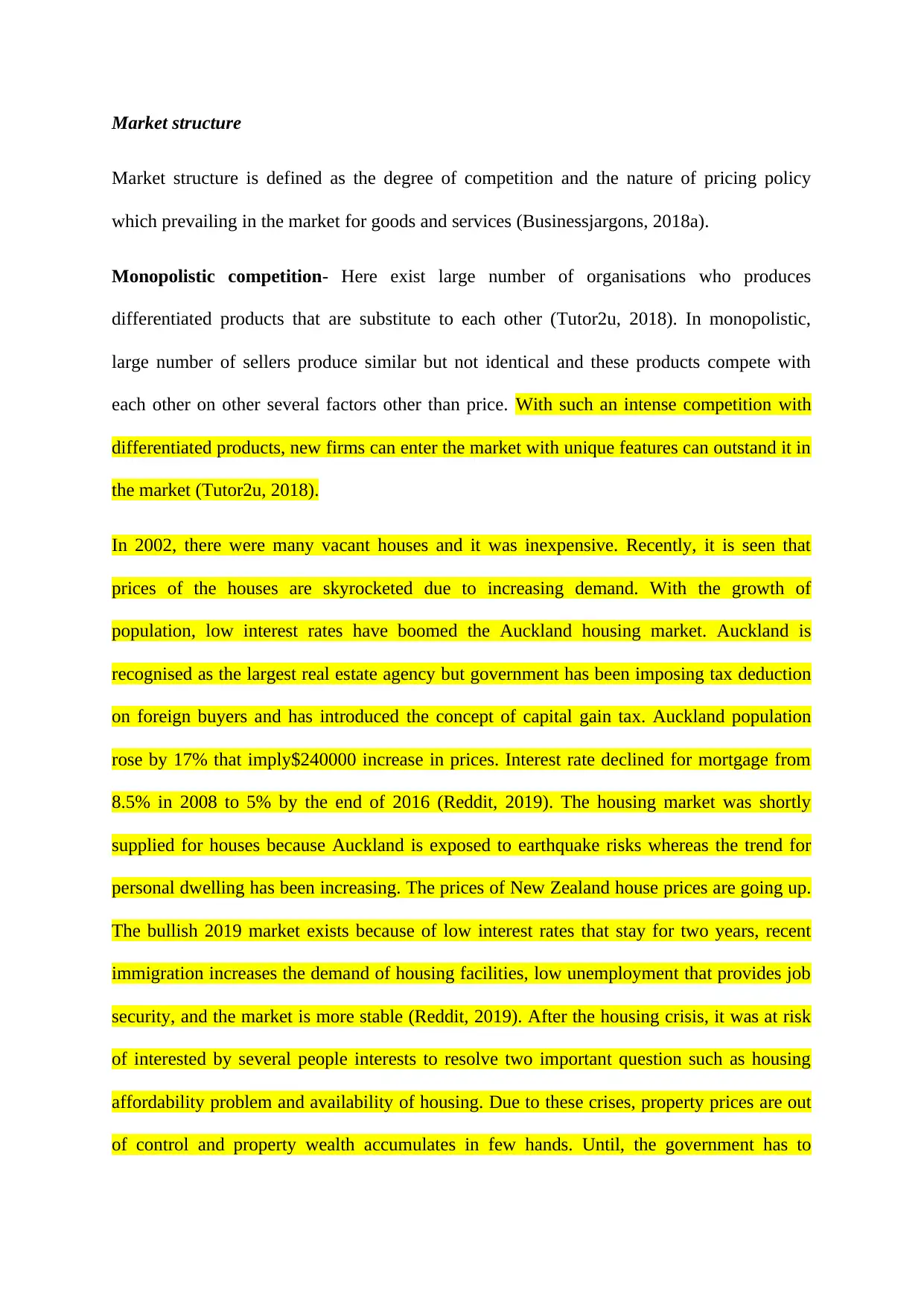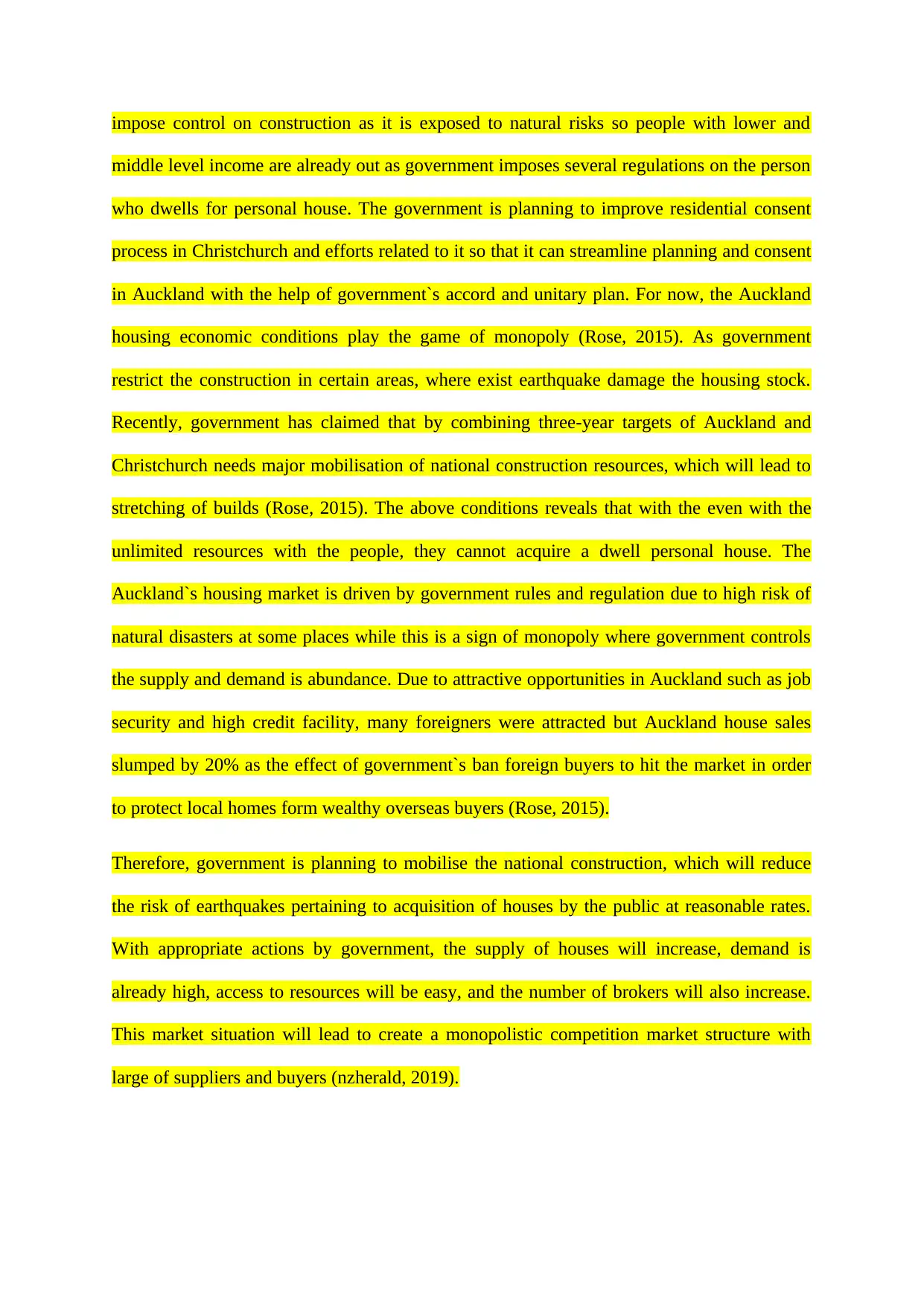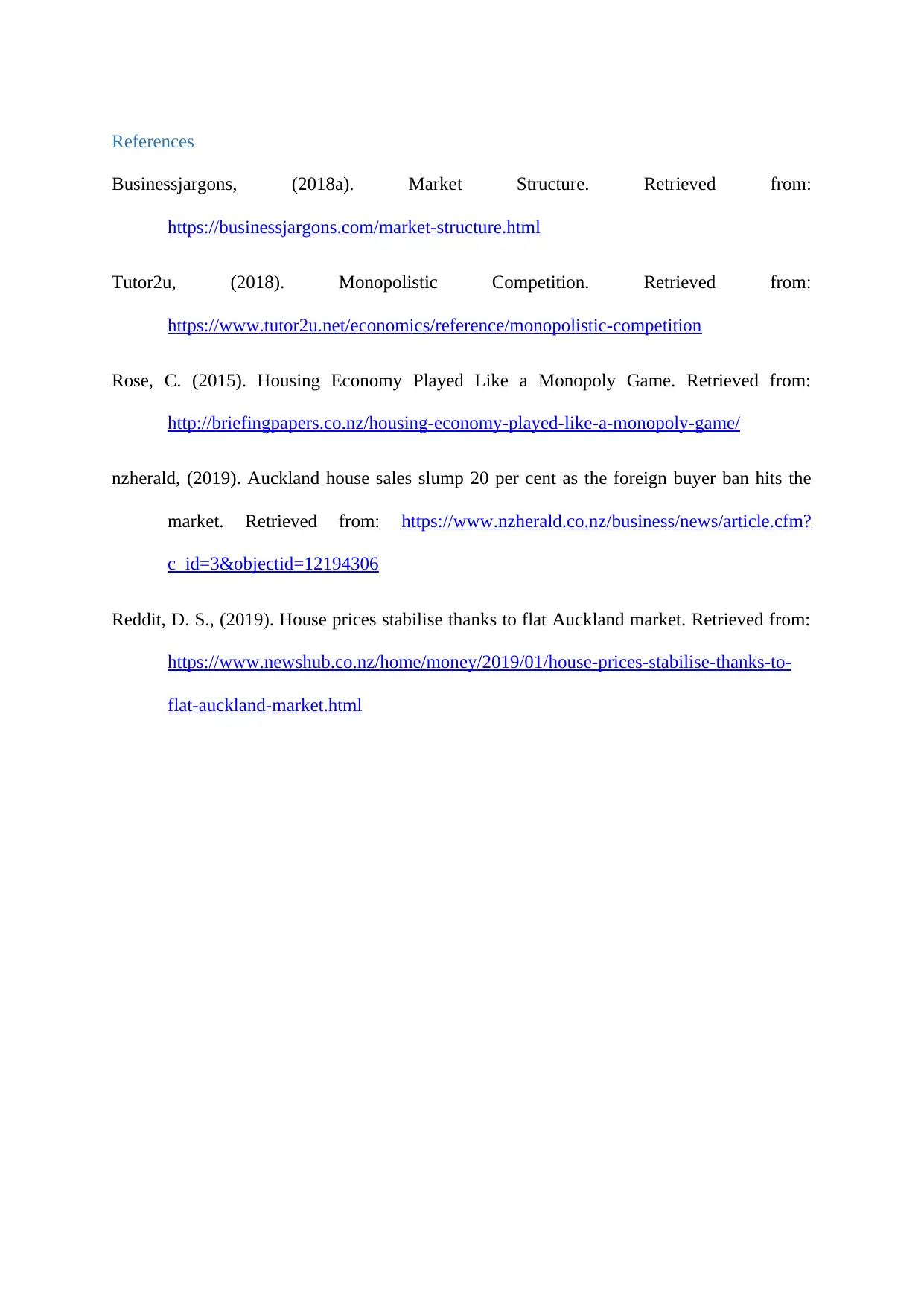Business Economics Report: Auckland Housing Market Analysis, 2019
VerifiedAdded on 2023/04/20
|4
|826
|334
Report
AI Summary
This report provides a comprehensive analysis of the Auckland housing market, examining its structure and the impact of economic factors. It begins with a summary of the case study, focusing on the foreign buyer ban and its effects on the market. The analysis delves into the application of economic theories, including demand and supply, to illustrate the consequences of the ban. Furthermore, the report explores the market structure, specifically the concept of monopolistic competition within the Auckland housing market. It discusses the government's role in regulating the market due to earthquake risks and how this influences supply and demand dynamics. The report also references the impact of low interest rates, population growth, and immigration on housing prices, presenting a nuanced understanding of the market's complexities. The conclusion suggests that with appropriate government actions, the market could move towards monopolistic competition with a greater number of suppliers and buyers.
1 out of 4





![[object Object]](/_next/static/media/star-bottom.7253800d.svg)